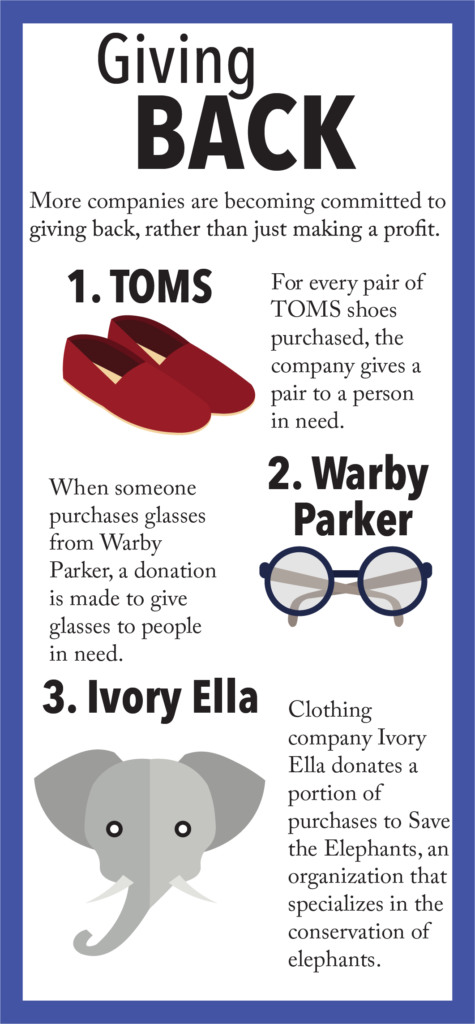As consumers consider a company’s ethics in their buying decisions, more businesses realize the value of keeping employees happy.
In 2014, Scott Wise had been working toward reshaping his company’s mission for almost two years. That’s when he received a phone call he says marked one of the most important moments in his 20-year history of running Scotty’s Brewhouse.
The call came from Kim Dodson of The Arc of Indiana, an organization that works to help people with intellectual and developmental disabilities realize “their goals of living, learning, working, and fully participating in the community,” according to their website. She was looking for a local business partner to help start a training facility for those with disabilities.
We want to open this hotel in downtown Muncie, and we want Three Wise Men to do a pizza place there, she said over the phone.
I love it, replied Scott. I’m in.
Well, wait, you haven’t heard the whole pitch, Dodson said. The Arc of Indiana trains and hires people with disabilities in Indiana. We want to teach people how to go out and get jobs in the real world.
I’m in! replied Scott, once again.
Wait, you still haven’t heard everything. A portion of your staff has to have some kind of physical or mental disability.
How many times do I have to tell you? said Scott. I’m in.
Now, 10 percent of his workforce would have some kind of disability.
“I said to myself, ‘That’s going to be the thing that I stand upon.’ The thing that I hope—as I leave this world—I hope we remember that Scott had good food, but he also did really good things for the community,” Scott says.
A Ball State University alumnus raised around the idea of creating your own vision, Scott knew by the time he was 10 that he wanted to own his own business one day. At 14, he started his own lawn-mowing service called Odd Jobs, Inc., complete with business cards. At 22, after presenting an in-depth business plan to his parents, he cosigned a loan with them to buy a small bar that would be the foundation for Scotty’s Brewhouse.
But Scott understood that keeping his business alive and thriving would take more than just good food. Employee satisfaction became his number-one goal. He sent handwritten notes to his employees and allowed them freedom with their uniforms, creating a more relaxed environment. He also implemented incentive programs for employment milestones, including gifts like watches and all-expenses-paid trips to New York City.
Scott chose to support causes like the Susan G. Komen organization and The Arc of Indiana because they truly meant something to him. This, he says, was what created “the magic word we all like to use—culture.”
Scott says culture is a company’s personality. Just as people have defining characteristics making them unique, so do businesses. Company culture defines the work environment but also includes elements such as a company’s mission, values, ethics, expectations, and goals.

People encounter company culture every day. It’s in the clothes we wear, the food we buy, and the products we use—all items we’ve deemed worthy of our time and money.
Customers place value in the quality and functionality of products, says Kesha Coker, an assistant professor of marketing at Ball State, focusing mainly on whether it will satisfy their needs.
According to research from California StateUniversity, culture has only emerged as a priority over the last two decades.
Consumers now care more about how companies represent themselves. Studies from Harvard Business School have shown that companies with strong emphasis on “results and caring” have been the most successful. Happy cultures make happy customers.
According to a study by the Social Market Foundation, satisfied employees are up to 20 percent more productive than unhappy employees, and when it comes to salespeople, happiness has an even greater impact, raising sales by 37 percent.
Scott believes in putting his employees first. If his people are happy, he finds that the customers are, too. He says much of the “magic” of his culture comes from employees enjoying their work.
“You can get a burger and fries from a thousand different places,” Scott says. “But to get personality, and to get people that care, and that smile, and that say please and thank you, and understand polite etiquette—I think things like that, that’s what truly makes a company successful.”
The growth of social media has also influenced how people view brands.
Involvement and transparency are available online, allowing consumers to gain better insight into companies and more easily expose or praise them. Coker says customers today value being part of the process.
“It’s become a participatory culture, so customers are contributing to marketing,” she says.
Buying products has also become more socially driven, Coker says. Even brief compliments on an outfit might affirm someone’s purchase. Writing reviews on Amazon reinforces the products to others.
“Now we are in an age where, because the market has the ability to voice what’s on their mind, and they have more power, they can actually influence other people more readily than in the past,” Coker says.
Scott has been able to stay relevant in his market through his willingness to adapt and change as society does. While growing the company, he realized his goal of becoming an “anti-chain” chain. This meant he wanted each location to have an atmosphere similar to a “mom-and-pop” restaurant, but there also needed to be standard rules. For example, Scotty’s in Bloomington, Indiana, had to taste the same as Scotty’s in Waco, Texas.
Scott says he’s always loved trying new things, but he knows that’s not typical in most people. Still, he says, the world is always changing.
“You’ve got to understand that you either change with it,” he says, “or you die as a business.”
This column was originally published in the fall 2018 print edition.




